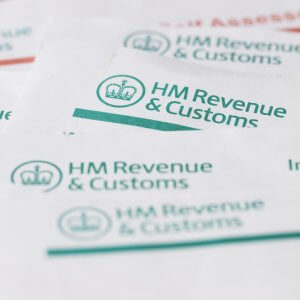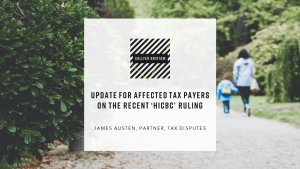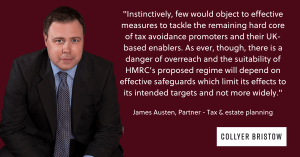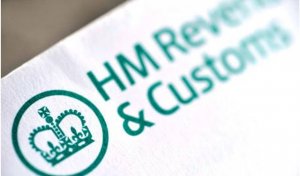- Tax disputes & investigations

Longer Reads
Landmark child benefit case reaches Court of Appeal
James Austen, Partner and Head of Tax Dispute, acting for Mr Wilkes, comments ahead of the hearing.
2 minute read
Published 23 November 2022
Key information
- Specialisms
- Private Wealth
- Services
- Tax disputes & investigations
Wednesday 23 November 2022, London: The Court of Appeal (Lords Justices Newey, Baker, and Arnold) will today hear HMRC’s appeal in the leading HICBC case (HMRC -v- Wilkes). The outcome of this important case again puts the controversial High Income Child Benefit Charge (the “HICBC”) in the spotlight. The case addresses whether HMRC may impose the HICBC by means of “Discovery Assessments”, which enable HMRC to demand tax outside the normal four-year assessment limit. Having won previously at the First-tier Tribunal and at the Upper Tribunal, further success for Mr Wilkes will mean HMRC would – at the time – have been wrong to impose the charge on hundreds of thousands of taxpayers in the UK. Mr Wilkes’ legal team will invite the Court of Appeal to uphold the Upper Tribunal’s decision for the reasons given by Upper Tribunal.
A controversial – and arguably unjust – retrospective change in tax law announced by then-Chancellor Rishi Sunak in his 2021 Budget, and becoming law in sections 97-99 Finance Act 2022, means HMRC have already ensured that hundreds of thousands of other taxpayers who were similarly subjected to HICBC Discovery Assessments cannot take the benefit of the Court of Appeal’s judgment, whatever the outcome. So HMRC win, even if they lose.
Regrettably, it proved impractical to launch a Judicial Review claim against the retrospective aspects of the Finance Act 2022 changes (on established human rights grounds) at the time – even though hundreds of thousands of taxpayers were affected.
The effects of the retrospective provisions of Finance Act 2022 were particularly damaging for those 400-or-so taxpayers whose HICBC Discovery Assessment cases are waiting to be heard in the First-tier Tribunal. Absent the Finance Act 2022 provisions, those taxpayers would normally have expected to apply the outcome in Wilkes in their own appeals.
But, now, unless a HICBC appeal was both: (1) notified to the Tax Tribunal on or before 30 June 2021; and (2) a stated ground of appeal is that “…the [Discovery] assessment is invalid as a result of its not relating to the discovery of income which ought to have been assessed to income tax but which had not been so assessed” (as it was put in Finance Act 2022), an appellant is unable to rely on the outcome of Wilkes. As HMRC knew (and would have intended when formulating the second requirement), vanishingly few Tribunal appeal grounds, written by un-represented lay appellants, are sufficiently particularised to meet such a strict requirement. The result of this, we say, is to undermine the rule of law to the detriment of taxpayers who knew nothing of HICBC at the relevant time. Many consider this to be exceptionally harsh and unjust.
One hopes that First-tier Tribunal judges, who are well used to interpreting what taxpayers meant in their appeal notices, rather than what they necessarily wrote, will be scrupulous in interpreting written grounds of appeal fairly when applying this requirement, to avoid the obvious injustices that would otherwise arise.
The HICBC was introduced in 2013, and since 6 April 2021 it has affected wholly basic-rate taxpayers. It is intended to claw back Child Benefit payments from those whose “Adjusted Net Income” for tax purposes exceeds £50,000. Mr Wilkes was subject to the HICBC between 2014-17, which he, in common with many taxpayers in his position, was unaware of at the time. HMRC wrote to Mr Wilkes in November 2018 to tell him that he might be liable to pay the HICBC. After checking the position, Mr Wilkes notified HMRC that he was liable. At that point, HMRC issued Mr Wilkes with Discovery Assessments for underpaid tax. Recognising that Mr Wilkes had a “reasonable excuse” for not paying the HICBC at the time, HMRC did not seek to impose penalties on him.
This appeal is on a number of narrow but important technical points relating to the proper meaning of the word “income” in section 29 Taxes Management Act 1970 (which confers on HMRC the power to issue discovery assessments in certain circumstances).
In Mr Wilkes’s case, if the Court of Appeal upholds the Upper Tribunal’s decision, it will mean that HMRC never had power to issue these HICBC Discovery Assessments. Because of the uncertainty caused by Finance Act 2022 and the fact that every appellant taxpayer’s grounds of appeals will be different, it is not known how many – if any – HICBC appeals will survive to take the benefit of Wilkes.
For more information, visit our tax disputes & investigations page.
Related content
Longer Reads
Landmark child benefit case reaches Court of Appeal
James Austen, Partner and Head of Tax Dispute, acting for Mr Wilkes, comments ahead of the hearing.
Published 23 November 2022
Associated sectors / services
Authors
Wednesday 23 November 2022, London: The Court of Appeal (Lords Justices Newey, Baker, and Arnold) will today hear HMRC’s appeal in the leading HICBC case (HMRC -v- Wilkes). The outcome of this important case again puts the controversial High Income Child Benefit Charge (the “HICBC”) in the spotlight. The case addresses whether HMRC may impose the HICBC by means of “Discovery Assessments”, which enable HMRC to demand tax outside the normal four-year assessment limit. Having won previously at the First-tier Tribunal and at the Upper Tribunal, further success for Mr Wilkes will mean HMRC would – at the time – have been wrong to impose the charge on hundreds of thousands of taxpayers in the UK. Mr Wilkes’ legal team will invite the Court of Appeal to uphold the Upper Tribunal’s decision for the reasons given by Upper Tribunal.
A controversial – and arguably unjust – retrospective change in tax law announced by then-Chancellor Rishi Sunak in his 2021 Budget, and becoming law in sections 97-99 Finance Act 2022, means HMRC have already ensured that hundreds of thousands of other taxpayers who were similarly subjected to HICBC Discovery Assessments cannot take the benefit of the Court of Appeal’s judgment, whatever the outcome. So HMRC win, even if they lose.
Regrettably, it proved impractical to launch a Judicial Review claim against the retrospective aspects of the Finance Act 2022 changes (on established human rights grounds) at the time – even though hundreds of thousands of taxpayers were affected.
The effects of the retrospective provisions of Finance Act 2022 were particularly damaging for those 400-or-so taxpayers whose HICBC Discovery Assessment cases are waiting to be heard in the First-tier Tribunal. Absent the Finance Act 2022 provisions, those taxpayers would normally have expected to apply the outcome in Wilkes in their own appeals.
But, now, unless a HICBC appeal was both: (1) notified to the Tax Tribunal on or before 30 June 2021; and (2) a stated ground of appeal is that “…the [Discovery] assessment is invalid as a result of its not relating to the discovery of income which ought to have been assessed to income tax but which had not been so assessed” (as it was put in Finance Act 2022), an appellant is unable to rely on the outcome of Wilkes. As HMRC knew (and would have intended when formulating the second requirement), vanishingly few Tribunal appeal grounds, written by un-represented lay appellants, are sufficiently particularised to meet such a strict requirement. The result of this, we say, is to undermine the rule of law to the detriment of taxpayers who knew nothing of HICBC at the relevant time. Many consider this to be exceptionally harsh and unjust.
One hopes that First-tier Tribunal judges, who are well used to interpreting what taxpayers meant in their appeal notices, rather than what they necessarily wrote, will be scrupulous in interpreting written grounds of appeal fairly when applying this requirement, to avoid the obvious injustices that would otherwise arise.
The HICBC was introduced in 2013, and since 6 April 2021 it has affected wholly basic-rate taxpayers. It is intended to claw back Child Benefit payments from those whose “Adjusted Net Income” for tax purposes exceeds £50,000. Mr Wilkes was subject to the HICBC between 2014-17, which he, in common with many taxpayers in his position, was unaware of at the time. HMRC wrote to Mr Wilkes in November 2018 to tell him that he might be liable to pay the HICBC. After checking the position, Mr Wilkes notified HMRC that he was liable. At that point, HMRC issued Mr Wilkes with Discovery Assessments for underpaid tax. Recognising that Mr Wilkes had a “reasonable excuse” for not paying the HICBC at the time, HMRC did not seek to impose penalties on him.
This appeal is on a number of narrow but important technical points relating to the proper meaning of the word “income” in section 29 Taxes Management Act 1970 (which confers on HMRC the power to issue discovery assessments in certain circumstances).
In Mr Wilkes’s case, if the Court of Appeal upholds the Upper Tribunal’s decision, it will mean that HMRC never had power to issue these HICBC Discovery Assessments. Because of the uncertainty caused by Finance Act 2022 and the fact that every appellant taxpayer’s grounds of appeals will be different, it is not known how many – if any – HICBC appeals will survive to take the benefit of Wilkes.
For more information, visit our tax disputes & investigations page.
Associated sectors / services
- Tax disputes & investigations
Authors
Need some more information? Make an enquiry below.
Subscribe
Please add your details and your areas of interest below
Article contributor
James
AustenPartner
Specialising in UK trusts, tax & estate planning, Private wealth and Tax disputes & investigations
Enjoy reading our articles? why not subscribe to notifications so you’ll never miss one?
Subscribe to our articlesMessage us on WhatsApp (calling not available)
Please note that Collyer Bristow provides this service during office hours for general information and enquiries only and that no legal or other professional advice will be provided over the WhatsApp platform. Please also note that if you choose to use this platform your personal data is likely to be processed outside the UK and EEA, including in the US. Appropriate legal or other professional opinion should be taken before taking or omitting to take any action in respect of any specific problem. Collyer Bristow LLP accepts no liability for any loss or damage which may arise from reliance on information provided. All information will be deleted immediately upon completion of a conversation.
Close




































